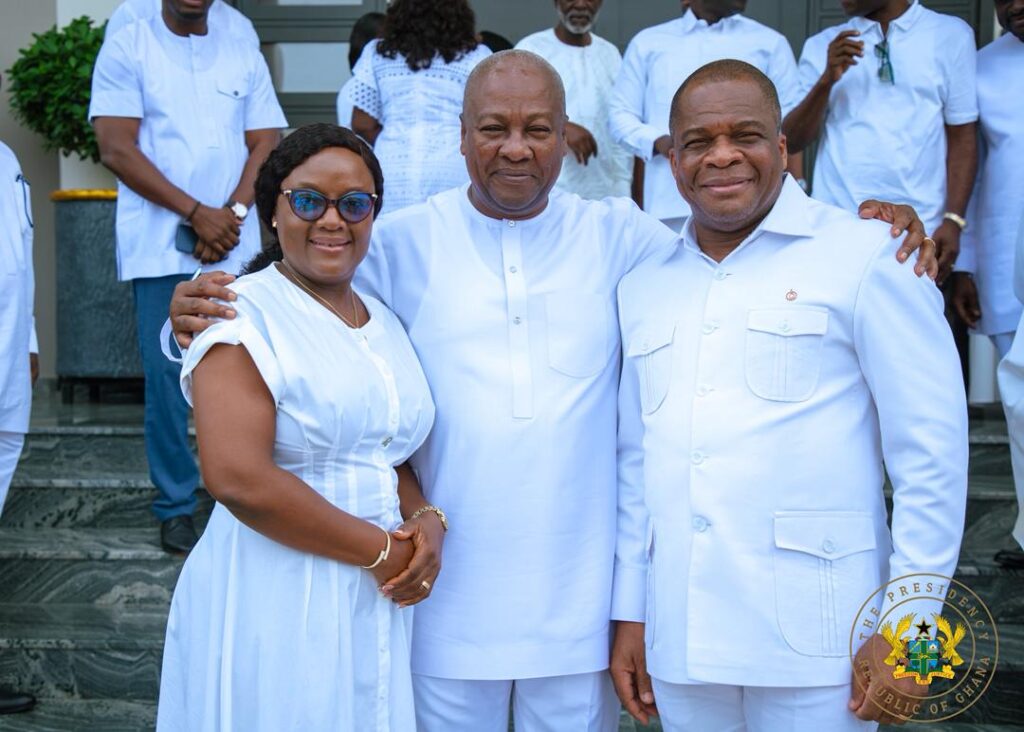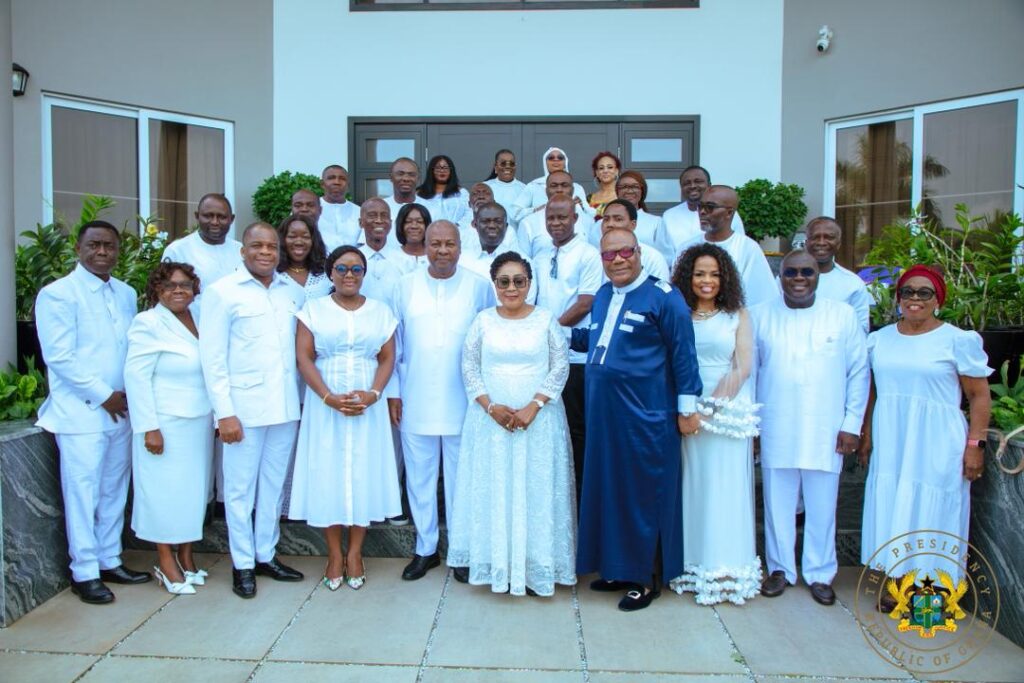President John Mahama has observed his 67th birthday with a morning devotion prayer service at his residence in Accra.
Leading a team of pastors to pray with the President was the General Superintendent of Assemblies of God, Ghana,Rev Stephen Wengam.
He administered the holy communion to President Mahama and his family and anointed him for the next phase of his life.

In a brief sermon, Rev Wengam urged President Mahama to remain faithful to Jesus, seek intimacy with the Holy Spirit, and trust in the Lord alone for divine success, guidance and protection.
The General Superintendent further admonished the President to avail himself as an instrument in God’s hands to transform Ghana into a prosperous, peaceful and Christ – centered nation.
The rest of the clergy present were Archbishop Nicholas Duncan Willams, Rev Michael Ayesu, Rev Ben Tettey and Rev Rtd Ernest Agyei. Others were Rev Andrew N Awintia, Rev Aaron Fant and Pastor Boateng Sarpong.

In a brief response, President Mahama recounted his humble beginnings, saying he never could imagine that he was going to become President of Ghana any day in the future.
He credited his elevation and achievements to the grace of God.
President Mahama narrated how he became a born- again Christian at Ringway Gospel Centre Assemblies of God at Osu in Accra, under the pastoral leadership of the former Senior Pastor, Rev Rtd Ernest Agyei.
With divine guidance and favour, President Mahama promised to do his utmost to leave a lasting legacy after his tenure.


https://shorturl.fm/Wx3jq